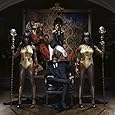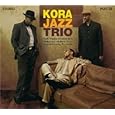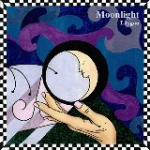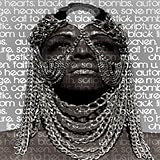The conceptual aspect of Marina Diamandis’ second album “Electra Heart” is unimportant and tritely executed (and spoken about tirelessly by Marina in the endless build up to the album’s release), but what should be important are the songs; the exhilarating heart on your sleeve emotions of a pop album. Marina and the Diamonds debut album, “The Family Jewels”, was histrionic in places with Marina’s yodelling and goggle-eyed vocals sometimes making for a tiring ride but she had some great songs and pulled off some confident performances. It was original in a way that Ellie Goulding’s debut “Lights” was not. Marina lost out to Goulding in the BBC’s rather silly “Sound of” award in 2010 and also failed to sell in the numbers that Goulding did. So welcome aboard the cream of America’s female popstars’ writing and production teams. Marina has been very honest about her ambition to shift enormous quantities of records and, supposedly in the name of the concept, at any cost to her originality or credibility. Who cares, as long as it’s good?
The second single “Primadonna” has a few nice touches with the backing vocal ‘oohs’ and ‘wows’ commenting on Marina’s swooping main vocal making it more idiosyncratic than her American counterparts and the spoken verses on the chunkily spinning “Homewrecker” are pure Neil Tennant, which can never a bad thing. On the angelically-chiming “Teen Idle”, which is probably the best song here, Marina creates a bedroom anthem for the socially alienated girls, and I suspect some boys, harbouring their truly guilty secret of wanting to be Jordan and with its ironic, gleeful ‘feeling super, super, super suicidal!’ refrain adding some humour.
It’s interesting that both this track and the closing, majestic electro ballad “Fear and Loathing” are both produced by Liam Howell who also worked on the majority of “The Family Jewels” and is also the only British producer here. These tracks are two of the most charismatic and knowing here and also the most interesting musically and melodically with Marina completely owning both songs in terms of performance; who knows how this album would have sounded if Howell had been given more free reign again here? And in what is turning out to be a very irritating trend some of the best songs are only available on the deluxe version of the album; the pounding and clear-headed first single “Radioactive”, straightforward piano ballad “Buy the Stars” and Aha-indebted “Lonely Hearts Club”.
If only these tracks had replaced the plodding and anodyne (and not on purpose, I suspect, but it’s a bit confusing what with this cock-eyed concept) “Living Dead”, “Valley of the Dolls” and “Power and Control” amongst others then this would have been a solid, albeit more aggressively commercial, sophomore effort. As it stands currently it’s a 3 star must do better next time.
Disappointment.
I found out that Donna Summer had died this week in the same way as millions of others did; on an online news site. My first reaction was sadness that someone had died so young but there was much more to it than that. We all have songs and artists that we link to events in our lives and Donna Summer’s work intersects my lifeline on a couple of very important occasions.
The controversy around “Love to Love You Baby” didn’t quite pass me by but I wasn’t losing any sleep over it; I was studying for my mock “A” levels and “Bohemian Rhapsody” was impossible to ignore at the time. 18 months later, things were very different; I was a DJ at a students’ union (thanks to my old mate Steve J)and things were going a bit disco (again thanks to Steve). I was playing songs by Tina Charles, Heatwave and Billy Ocean, but nothing had convinced me that this wasn’t another short-lived fad; then I heard “I Feel Love”. Game-changer doesn’t do it justice; the synth sounds that Giorgio Moroder had been playing with for the last 5 years for novelty value finally came of age in support of Donna Summer’s mezzo-soprano vocal to create a massive chart-topper in the UK.
This single was the starting-point for a series of dance-pop hits worldwide. Over the next 3 years, you couldn’t escape from Donna Summer as the stream of dancefloor-friendly pop songs showed no sign of slowing down. If you listen to any of the greatest hits packages, half of the tracks come from this period of about 3 years. Although she had a steady stream of hits, there were a few misses as well, and I loved one of the epic misses.
“Never Lose Your Sense of Humor” was a duet with her songwriter/collaborator Paul Jabara which was released in 1979 and failed to chart anywhere in the world. 2 years later, I had a DJ gig at a fun pub (the concept was basically gay club aimed at straight punters) in the East Midlands and my boss turned up with an import Casablanca 12” of this track. I loved it and we played it virtually every night for about 2 years as a late-night anthem.
Donna Summer went on to release even more classics in the ‘80s including the highly-acclaimed but commercially tepid “State of Independence” but the hits were sporadic after 1980 as new fashions and divas came along. The controversy over allegedly anti-gay sentiments expressed in the mid-80s didn’t help, although that particular wound seems to have healed over time as she went on to attain Hall of Fame status and achieve the” legend” tag which her work so richly deserved.
There are no stories of drug dependence or abusive relationships; just a story of a singer who made us feel happy and sad in turn and who, more importantly, made us dance. A singer who found happiness in her faith rather than in a bottle or a needle and who died with dignity after a long battle with illness. She will be remembered for her music rather than her private life and that says everything you need to know. Remember her by listening to your favourite Donna Summer song; I’ll be listening to “Never Lose Your Sense of Humor”, waiting for the second chorus and the first appearance of that wonderful voice.
RIP
 Santigold’s (previously Santogold but that name was already taken by a jewellery retailer, of all people) second album starts with a magnificent, euphoric rush that would be near impossible to sustain throughout an entire 40 minutes. The appropriately named ‘Go!’ was released last year and features Karen O from the Yeah, Yeah, Yeah’s and, like ‘L.E.S. Artists’ from 2008’s debut ‘Santogold’ album, presents a new artist so completely at one with her craft that you felt genuinely thrilled that she’s here.
Santigold’s (previously Santogold but that name was already taken by a jewellery retailer, of all people) second album starts with a magnificent, euphoric rush that would be near impossible to sustain throughout an entire 40 minutes. The appropriately named ‘Go!’ was released last year and features Karen O from the Yeah, Yeah, Yeah’s and, like ‘L.E.S. Artists’ from 2008’s debut ‘Santogold’ album, presents a new artist so completely at one with her craft that you felt genuinely thrilled that she’s here.
‘Go!’ conjures up memories of Lene Lovich, Bow Wow Wow and Burundi Beat and has a dancing vocal melody which makes me want to pogo wildly in the kitchen (not advisable, very small space). The two melody-strong tracks that follow, ‘Disparate Youth’ and ‘God from the Machine’, establish a more downbeat mood and energy utilising ska, world music and reggae which is the overall influence on this album generally and is more of a cohesive and richer sound than that found on her debut which often went in some odd directions sonically that maybe didn’t work in quite the way that Santigold may have wanted them to.
After this strong opening it takes some time before the only other real standout track appears; a sing-a-long 80’s-reminiscent track called the ‘The Keepers’ with a big chorus and Talking Heads lyrical reference (‘We’re the keepers, whilst we sleep in America our house is burning down”) that does make me wonder why the trio of ‘Freak Like Me’, ‘Look at These Hoes’ and ‘Big Mouth’ are here. All 3 are Diplo and/or Swith produced and carry the frantic, rhythmic, sharpness of ‘Creator’ and ‘You’ll Find a Way’ from her debut but these tracks feel slight compared to the emotional heft of the remainder of this album.
Also all 3 continue a lyrical theme of bashing young female artists based either on looks or talent (‘You look good in Photoshop as long as it’s a day when it’s not sunny’ is a typical example) whom surely Santigold doesn’t consider her contemporaries? Lyrically it seems mean-spirited and at odds with the general tone and sentiment of the album. And the dour ‘Fame’ sounds so much like MIA that I thought she was the guest vocalist.
It’s been pretty well documented that this was a difficult album for Santigold to get finished explaining the four year gap between this and her debut. Big name pop producers were hired to oversee the project the results of which were subsequently scrapped; she may have a strong pop sensibility but Santigold is not just a pop artist and is certainly not a manufactured puppet. There is enough that is good here, just, to have faith that she will remain an intriguing and gifted artist who will finally deliver what she’s been promising.
 Well, the feedback on Closet Classics has been pretty good so far and it looks like it’s going to be around for a while. We would love to have more contributions from our readers, so do let us know about your favourite Closet Classic, why you like it and any memories it has for you. We’ve been asking our favourite bands and musicians to tell us about their CCs and we’re hoping to have some of those live fairly soon.
Well, the feedback on Closet Classics has been pretty good so far and it looks like it’s going to be around for a while. We would love to have more contributions from our readers, so do let us know about your favourite Closet Classic, why you like it and any memories it has for you. We’ve been asking our favourite bands and musicians to tell us about their CCs and we’re hoping to have some of those live fairly soon.
Meanwhile, we have our first reader contribution from Klare Stephens who loves “Kora Jazz Trio Pt 3”, which is so closet that there aren’t any Spotify links, but we have managed to locate a few YouTube links.
 Kora Jazz Trio are Abdoulaye Diabate, Djeli Moussa and Moussa Cissoko and were formed in France. Djeli Moussa, the kora player comes from a long line of Griots, (African, in this case Guinean, troubadours) but with no liner notes or other information, biogs are hard to give other than that the pianist and percussionist originally hail from Senegal. To the uninitiated, the kora is the African cousin to both the guitar and harp and its rich instrumentation and has been played for centuries. It seems fitting that the Afro-American style of music, Jazz should here be played with such a traditional instrument, it seems bizarre that it has not been recorded like this before to my knowledge.
Kora Jazz Trio are Abdoulaye Diabate, Djeli Moussa and Moussa Cissoko and were formed in France. Djeli Moussa, the kora player comes from a long line of Griots, (African, in this case Guinean, troubadours) but with no liner notes or other information, biogs are hard to give other than that the pianist and percussionist originally hail from Senegal. To the uninitiated, the kora is the African cousin to both the guitar and harp and its rich instrumentation and has been played for centuries. It seems fitting that the Afro-American style of music, Jazz should here be played with such a traditional instrument, it seems bizarre that it has not been recorded like this before to my knowledge.
Of course African Jazz has been around and recorded for decades but usually with western instrumentation. Moussa is a true original adapting his kora to 32 strings instead of the usual 21, giving it an even greater harp like range and magical sound; and on this album he also plays guitar on some tracks. My initial concerns that the kora would compete for lyrical space with the piano were easily overcome, whether the kora is the natural complement to the piano or the product of its player’s harmony in this trio, I suspect the answer is both. The hand drums ground the music perfectly as well as completing the traditional African sound. Each player is given room to solo as is usual with a Jazz trio and the kora also makes a great instrument to accompany the others. Production values are clean and crisp but I can’t help fancying them live rather than live in a Parisien studio as this album is.
My stand out tracks are the instrumentals ‘Xam-Xam’ , ‘La Musse’ and ‘Chan Chan’ , unfettered by vocals the music can really fly and the vocal tracks alternate with instrumentals on the disc. The vocals as well as distracting one from the beautiful musical sound are uninspiring whether it is because I’m unaware of their content, I think it’s more because I’m unaroused by the emotional frequency and vocal sound; however this is a great collection overall. On their first CDs, Kora Jazz Trio Pt 1 (2003) and Part2 (2005), they stayed closer to American Jazz with compositions from the likes of Charlie Parker and Thelonious Monk, where the kora takes the brass part, but on their third album they are confident enough to stride out with mainly home grown tunes although, ‘Chan-chan’ written by Francisco Repilado comes from the fine stream of Latin Jazz.
All the songs on this album are uplifting and upbeat and left me with the conundrum of whether I should file them under the genres of Jazz, African or Dance music, in the end I settled for World Fusion but these really are the roots of Jazz with the instruments it would have been originally played on. Perfect for early morning coffee and equally good with late night wine, Kora Jazz Trio are a band to track down and I suspect to see them live, judging from the limited YouTube footage, would be a musical treat.
 OK, I’ll start with the facts. “Moonlight” is the second single from the upcoming debut Lilygun album and it’s out this week. The band, fronted by singer/songwriter/guitarist Anna-Christina, has been building up a loyal following on the London live circuit and it sounds like they’re ready to reach a wider audience. It’s not easy to categorise Lilygun; there are a lot of diverse elements in the mix and they don’t really fit easily into any scene, so I’ll just try to tell you a bit about the song.
OK, I’ll start with the facts. “Moonlight” is the second single from the upcoming debut Lilygun album and it’s out this week. The band, fronted by singer/songwriter/guitarist Anna-Christina, has been building up a loyal following on the London live circuit and it sounds like they’re ready to reach a wider audience. It’s not easy to categorise Lilygun; there are a lot of diverse elements in the mix and they don’t really fit easily into any scene, so I’ll just try to tell you a bit about the song.
“Moonlight” opens with clinically clean guitar arpeggios followed by equally shiny single overlaid guitar notes, then a breathy, ethereal vocal. From here onwards, the verse builds steadily towards a chorus underpinned by the dirtiest, most distorted guitar sound this side of Swedish death metal; and then back to the clean sound again for the next verse. It would be easy to fall into goth-by-numbers territory with this formula; the difference here is that it’s a great song and a very powerful vocal performance from Anna-Christina. The song goes through another couple of cycles (echoing the cycles of the moon?) before winding down with a smattering of picked guitar notes reverberating into the distance.
As a single, “Moonlight” works; it’s dynamic and melodic and when it’s over you want to hear it again. As a taster for the album, again, it works perfectly. After hearing this, I can’t wait to hear the album and the live shows are looking like a pretty good bet as well. And if you don’t want to take my word for it, you can watch and listen for yourself here “Moonlight” and find out more about the band here Lilygun. Enjoy.
 Dawn Richard is someone who I’m familiar with only because she appeared on the under-rated 2011 P Diddy (is he still calling himself that? who can keep up) album “Last Train To Paris” as part of the female duo that accompanied him called Dirty Money. They have since split up with the two members, Dawn Richard and Kalenna Harper, now going it alone as solo artists. Richard was also a member of the successful American manufactured girl group Danity Kane who disbanded in 2009, again put together by P Diddy. If that’s put you off then please don’t let it, you’ll be missing out on something very special.
Dawn Richard is someone who I’m familiar with only because she appeared on the under-rated 2011 P Diddy (is he still calling himself that? who can keep up) album “Last Train To Paris” as part of the female duo that accompanied him called Dirty Money. They have since split up with the two members, Dawn Richard and Kalenna Harper, now going it alone as solo artists. Richard was also a member of the successful American manufactured girl group Danity Kane who disbanded in 2009, again put together by P Diddy. If that’s put you off then please don’t let it, you’ll be missing out on something very special.
This album is being marketed as an EP but it’s almost 40 minutes long with 10 tracks (including an intro and outro) and is longer than many traditional albums, not that length is any indication of quality (ahem). Richard has also stated that it’s the precursor for her first album proper “Golden Heart”, out later this year, which will be the first of three conceptually linked albums. This may sound a little cumbersome and ambitious for a first time solo artist but judging by the talent shown here, maybe not.
“Black Lipstick” is apparently a metaphor for the music industry, ‘she smelled of temptation and made me impatient’ and is a moody, softly drum and bass skittering groove which quickly establishes the tone for the rest of the album. Strangled tribal yelps at the end of the track bleed into the first single’s introduction, the appropriately militaristic “Bombs” which is one of the more straight forward and commercial dance tracks here but the steeliness of Richard’s vocal and the subtle but dramatic string motifs insure that it’s anything but generic.
The looped sirens of “Automatic” with a scolding Stepford wife-charged Dawn pushing her inconsiderate lover aside morphs into the fractured piano notes of the sonically diverse and exhilarating trilogy of “Change”, “Heaven” and “Faith”. Samba, Italian house, world music, soul and disco are influences that shade and propel these tracks using some of the most creative, cutting edge production that I’ve heard in a while in respect to the RnB genre. The two slower, closing tracks are probably the most fully realised and powerful songs here and are both magical. The cinematic, coolly restrained “Scripture” and the stark, hip hop-influenced “Save Me from U” (reminiscent of Kanye West at his most melancholic) are an exercise in quality control and subtle detail.
Although Richard may not possess a full throttle soul voice such as Mary J Blige (she actually sounds very like Brandy), her vulnerability and impressive falsetto work beautifully with the material; exactly as it should be. So, welcome Dawn Richard, a modern R‘n’B superstar in the making.
Highly recommended.


